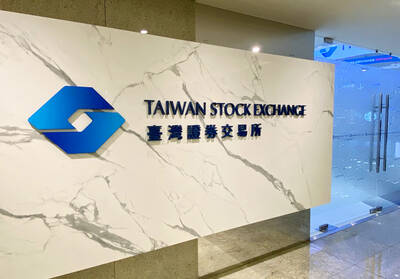Chatime (日出茶太), a Taiwanese bubble tea franchise, made a splash in the Philippines last week when it opened its 100th store there in the Abreeza Mall in Davao, the most populous city in the nation outside Metro Manila.
The brand offers a slew of teas, including its signature pearl milk tea, and variety of juices, smoothies and coffee.
The franchise, founded in Taiwan in 2005, now has more than 2,500 outlets in 41 nations worldwide, including the US, Canada, Japan, the UK, Australia, the Philippines and Indonesia.
Henry Wang (王耀輝), chairman of Chatime owner La Kaffa International Co (六角國際), last week said that the Philippines is the third overseas market to have 100 Chatime stores, after Indonesia and Australia.
Southeast Asia is Chatime’s largest market for growth and Asia accounts for 56 percent of its revenues, followed by 16 percent in the Americas, 10 percent in Australia and 4.5 percent in Europe, Wang said.
Christopher Cua (柯昭仰), who helped bring the brand into the Philippines in 2011 and is now marketing and finance director of Chatime Philippines, said he saw the huge potential in the local milk tea market early on.
The signature “Chatime milk tea” is still the best-selling drink, accounting for 40 percent of total sales, Cua said.
Chatime Philippines said local consumers used to prefer coffee, but milk tea has quickly become the most popular.
For an average white-collar worker, lunch costs about 100 pesos (US$1.95), while a cup of milk tea can be had for 90 pesos, which is “not too expensive,” said Jem, a 25-year-old office employee.
Milk tea is so popular that even Starbucks started introducing it, he added.
Cua said he hopes to expand to 150 stores in the Philippines by the end of the year.
The company said it plans to have 200 branches by next year.
With more than 300 Chatime stores in Indonesia, 100 in the Philippines, 50 in Malaysia and 20 in Cambodia, the company aims to expand into other Southeast Asian nations later this year, notably Thailand and Vietnam, Wang said.

Taiwan Semiconductor Manufacturing Co (TSMC, 台積電) secured a record 70.2 percent share of the global foundry business in the second quarter, up from 67.6 percent the previous quarter, and continued widening its lead over second-placed Samsung Electronics Co, TrendForce Corp (集邦科技) said on Monday. TSMC posted US$30.24 billion in sales in the April-to-June period, up 18.5 percent from the previous quarter, driven by major smartphone customers entering their ramp-up cycle and robust demand for artificial intelligence chips, laptops and PCs, which boosted wafer shipments and average selling prices, TrendForce said in a report. Samsung’s sales also grew in the second quarter, up

LIMITED IMPACT: Investor confidence was likely sustained by its relatively small exposure to the Chinese market, as only less advanced chips are made in Nanjing Taiwan Semiconductor Manufacturing Co (TSMC, 台積電) saw its stock price close steady yesterday in a sign that the loss of the validated end user (VEU) status for its Nanjing, China, fab should have a mild impact on the world’s biggest contract chipmaker financially and technologically. Media reports about the waiver loss sent TSMC down 1.29 percent during the early trading session yesterday, but the stock soon regained strength and ended at NT$1,160, unchanged from Tuesday. Investors’ confidence in TSMC was likely built on its relatively small exposure to the Chinese market, as Chinese customers contributed about 9 percent to TSMC’s revenue last

Taiwan and Japan will kick off a series of cross border listings of exchange-traded funds (ETFs) this month, a milestone for the internationalization of the local ETF market, the Taiwan Stock Exchange (TWSE) said Wednesday. In a statement, the TWSE said the cross border ETF listings between Taiwan and Japan are expected to boost the local capital market’s visibility internationally and serve as a key for Taiwan becoming an asset management hub in the region. An ETF, a pooled investment security that is traded like an individual stock, can be tracked from the price of a single stock to a large and

Despite global geopolitical uncertainties and macroeconomic volatility, DBS Bank Taiwan (星展台灣) yesterday reported that its first-half revenue rose 10 percent year-on-year to a record NT$16.5 billion (US$537.8 million), while net profit surged 65 percent to an unprecedented NT$4.4 billion. The nation’s largest foreign bank made the announcement on the second anniversary of its integration with Citibank Taiwan Ltd’s (花旗台灣) consumer banking business. “Taiwan is a key market for DBS. Over the years, we have consistently demonstrated our commitment to deepening our presence in Taiwan, not only via continued investment to support franchise growth, but also through a series of bolt-on acquisitions,” DBS